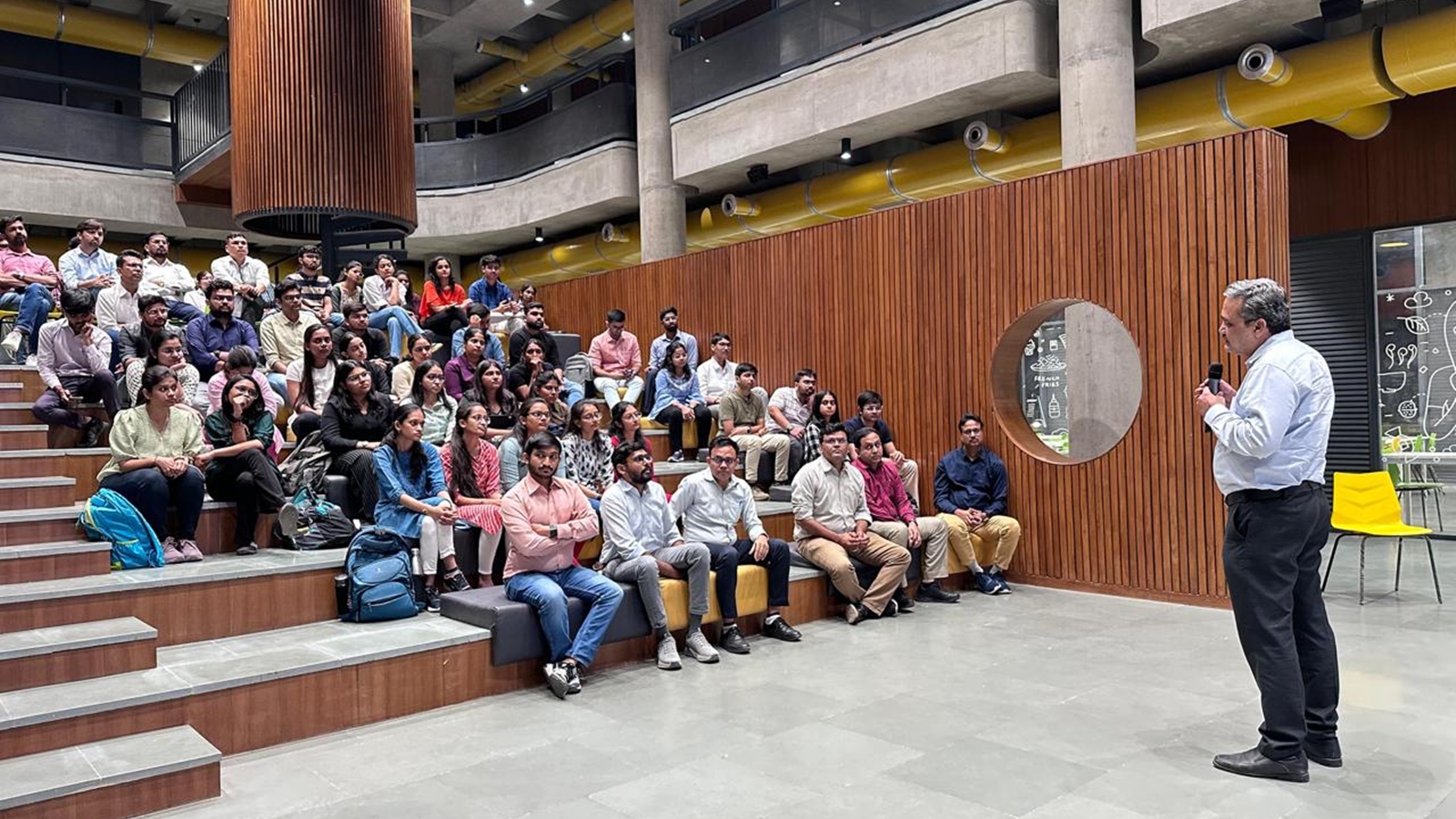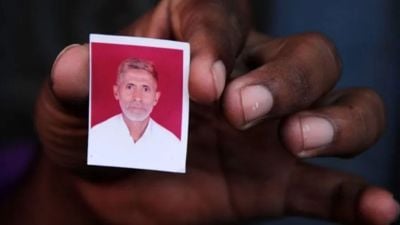In a bid to encourage medical students and practitioners to innovate in the healthcare sector, the state government Monday organised a sensitisation programme at its Student Startup and Innovation Hub, i-Hub, in Ahmedabad. The initiative aims to bring expertise in manufacturing healthcare products through local enterprises.
While i-Hub, the incubation centre established under the Student Startup and Innovation Policy (SSIP) by the Gujarat Education Department, is facilitating sensitisation programmes across the medical education ecosystem in the state in coordination with the SHSRC (State Health System Resource Centre), an innovation ecosystem orientation visit curated for medical college faculties and students was organised at the incubation centre on Monday.

“Surprisingly, while the highest percentage (12.2 per cent) of startups in Gujarat are in the healthcare and life sciences sector, more than 90 per cent of these are from technical institutes like engineering. The participation of medical institutes in innovations and startups is nil. The potential for startups is there but the ecosystem is missing. Looking at this, the SHSRC and i-Hub joined hands and signed a Memorandum of Understanding,” Hiranmay Mahanta, CEO of i-Hub, told The Indian Express.
The sensitisation programme focuses on understanding healthcare innovation and the startup ecosystem of Gujarat and also provides insight on how they can use this scheme for innovation in medical sciences and their professional life.
Sharing his experiences, Dr Pankaj Chhatrala, who pursued MBBS from the Jamnagar Medical College and launched his startup Orthohill in 2015, told The Indian Express, “There exists a gap in the healthcare sector between people appreciating the idea but at the same time not supporting it as a startup. Particularly, in the healthcare sector, we doctors are brainwashed right from the beginning that German and American technology is superior while our own cannot match with theirs.”
In 2019, Dr Chhatrala launched FlexiOH, a flexible cast to be used by orthopaedics. Currently, according to him, it is supplied to 50 developed countries, including the United States from where the startup generates 40 per cent of the revenue with a production of 5,000 pieces a month.
It took Dr Chhatrala four years from the date of launching his company to launching a product in the market. “When it was not accepted here, we deliberately tried to penetrate to developed countries like the US and today we are replacing one of the major American players,” he added.
Agreeing on the absence of an ecosystem for startups and innovations among doctors or health experts, Dr Karnav Patel, a dentist from Vijapur who has a startup Altea Enterprise Pvt Ltd, which manufactures workwear for healthcare professionals, pharmaceuticals as well as the food industry, said, “The first thing is to make doctors and even faculty experts aware about innovations and startups. More than 85 per cent of medical devices are imported. We need more doctors in innovations but the irony is that a doctor will think or plan about 50 or 100-bed hospital but not manufacture a sonography machine.”
Story continues below this ad
Suggesting an increased collaboration between engineering and medical fields, Dr Patel added that Gujarat has an advantage being a pharma industry hub as well as having a lot of people with an entrepreneurial mindset.
Taking feedback from these experts who have shared their experiences with MBBS students, deans and faculty members of medical colleges in the state as part of the sensitisation programme, the Health and Family Welfare Department collaborated with the Gujarat Student Start-up and Innovation Hub (i-Hub) to promote innovative solutions for addressing the key challenges faced in the healthcare sector in the state.
“Today was the first visit of i-hub by students and faculty members from government medical colleges in Ahmedabad and Gandhinagar. We are trying to bring about awareness among such initiatives which will be followed by other assistance activities,” said Dr A M Kadri, Executive Director, SHSRC.
The programme aims to sensitise the leaders of medical colleges and hospitals as well as faculties about innovation and startup support systems available in the state. Further, discussions were held on how medical colleges and hospitals can collaborate in the efforts.
Story continues below this ad
Also, orientation will be given about how faculties and students can participate and develop proposals for finding innovative solutions for the problems faced in medical care, medical education and hospital management. Selected proposals will also be provided financial assistance of up to Rs. 2.5 lakh along with mentoring from i-Hub.
“To begin with, nearly 28 health institutes, including pharmacy, Ayurved and dental —15 government, 11 private and 2 grant-in-aid — have been supported and issued a grant of around Rs 3-3.5 crore under state government’s SSIP 2.0,” said Dharmendra Mandaliya, joint CEO of Gujarat Knowledge Society that handles the SSIP.









